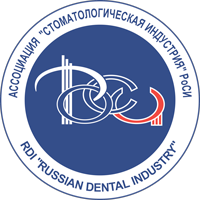DOI:
10.37988/1811-153X_2020_3_48Research of empathy and positive thinking of a dentist as a condition of professional competence
Downloads
Abstract
A professionally oriented approach in modern dentistry requires the formation of communication skills of the dentist and the ability to establish favorable psycho-emotional contact with the patient, since the fear of dental treatment in many patients is too strong. The relaxed and trusting relationship between the doctor and the patient improves the outcome of the treatment. Patients who feel calm with the doctor, tolerate dental interventions easier, need lower doses of sedatives and anesthetics. The patient’s great excitement or fear makes him consciously or unconsciously resist the doctor’s actions, which results in unpleasant sensations both in the patient and the doctor, and the likelihood of developing complications of a general nature (fainting, hypertensive crisis, collapse, etc.) increases. The aim — to study the empathy and positive thinking of dentists, teachers of clinical departments of the faculty of dentistry of Altay State Medical University (AGMU). These qualities are invariant components of the personality and important conditions for the formation of professional competence. Materials and methods. A study of 38 dentists who are the teachers of the clinical departments of the Faculty of Dentistry of the AGMU was conducted. The levels of empathy and the severity of the various channels of empathy in dentists were evaluated according to the method of V.V. Boyko. To identify the level of positive thinking style in doctors, the method of L.M. Rudina. Results. The general indicator of the level of empathy in the study group of dentists in general corresponds to a level above the average. The results of the optimism test showed that doctors in 75% of cases formed a positive thinking style. Conclusions. These indicators demonstrate that representatives of the studied group of medical workers do not have trouble in establishing psycho-emotional contact with patients.
Key words:
dentistry, communication skills, professional level of a dentist, empathy, positive thinking, professional competenceFor Citation
References
- Starichkov D.A. Establishing and maintaining high-quality contact with a doctor in the first interview with a patient. — Siberian Bulletin of psychiatry and narcology. — 2006; 2: 97—100 (In Russ.).
- Madaliyeva S.H., Asimov M.A., Yernazarova S.T. Formation and development of communicative competence of the doctor. — Scientific review. Pedagogical science. — 2016; 2: 66—73 (In Russ.).
- Dolgova V.I., Mel‘nik E.V., Petrova N.M. The phenomenon of empathy in psychological research. — Scientific and methodological electronic journal Concept. — 2015; 31: 86—90 (In Russ.).
- Yagnyuk K.V. The nature of empathy and its role in psychotherapy. — Journal of practical psychology and psychoanalysis. — 2003; 1 (In Russ.).
- Bojko V.V. Psychoenergetics. — St. Petersburg: Peter, 2008. — P. 117—131 (In Russ.).
- Kireeva M.V., Gribanova O.N. The problem of positive thinking in the domestic and foreign psychology. — Online journal Naukovedenie. — 2014; 4 (23): 39 (In Russ.).
- Rudina L.M. Formation of constructive thinking as an increase in the adaptability of an individual in the modern world. — Moscow: MSU, 2013. — P. 7—26 (In Russ.).
- Kryukova T.L. Optimism/pessimism in coping behavior of the subject: intergenerational aspect. — Proceedings of the II Siberian psychological forum “Psychological research: theory, methodology, practice”. — Tomsk: Tomsk state University, 2007. — P. 236—242 (In Russ.).
- Seligman M. New positive psychology. A scientific view of happiness and the meaning of life. — Moscow: Sofiya, 2006. — P. 168—176 (In Russ.).
- Orlov YU.M. Sanogenic thinking. — Moscow: Enlightenment, 2000. — P. 12—29 (In Russ.).










